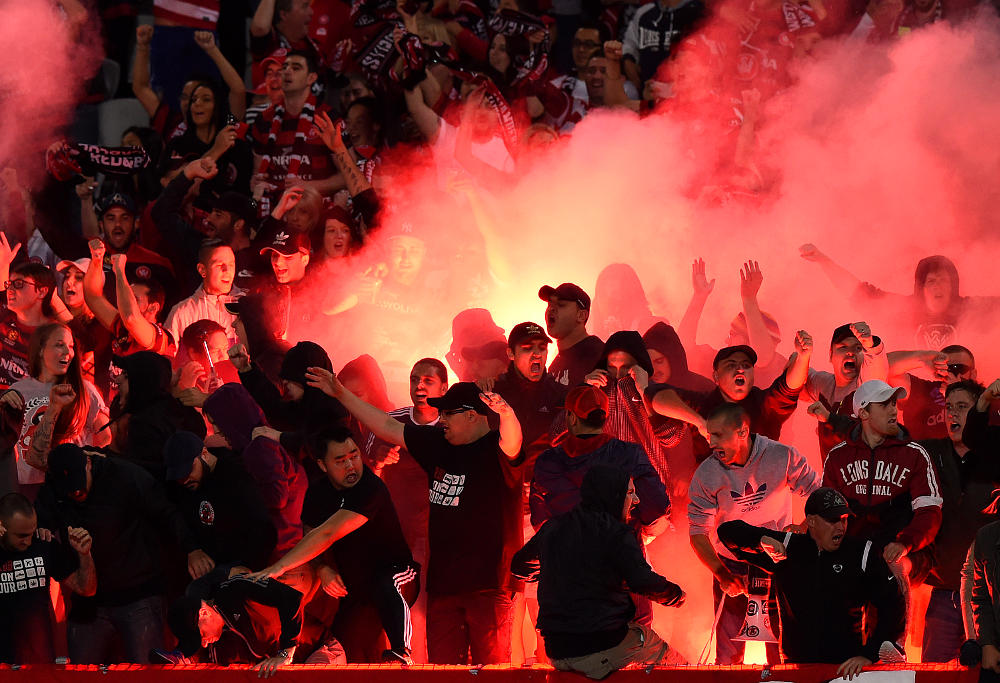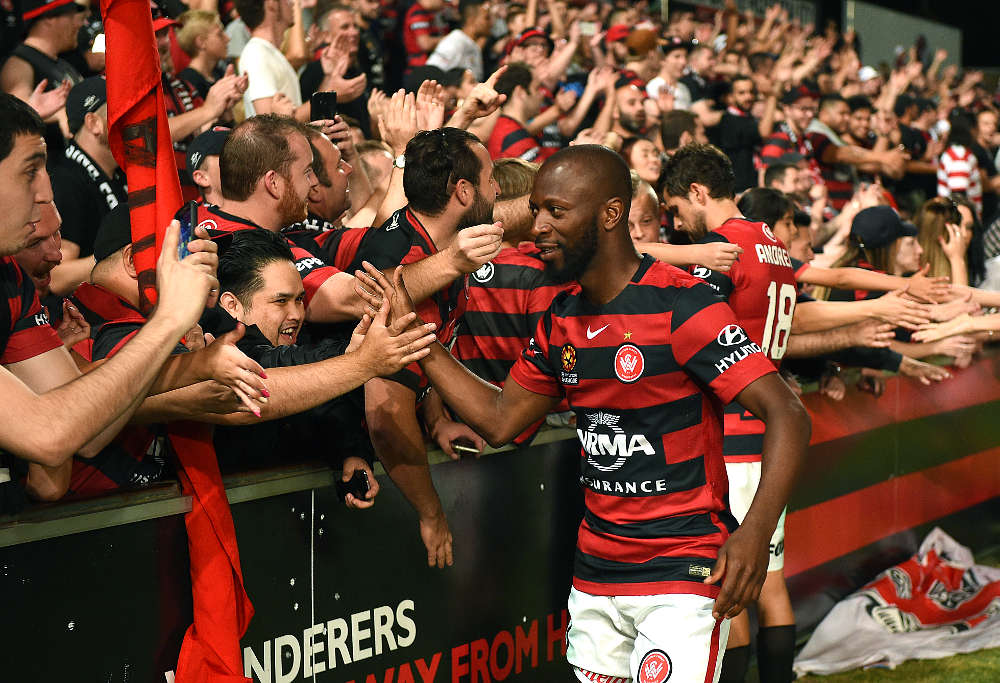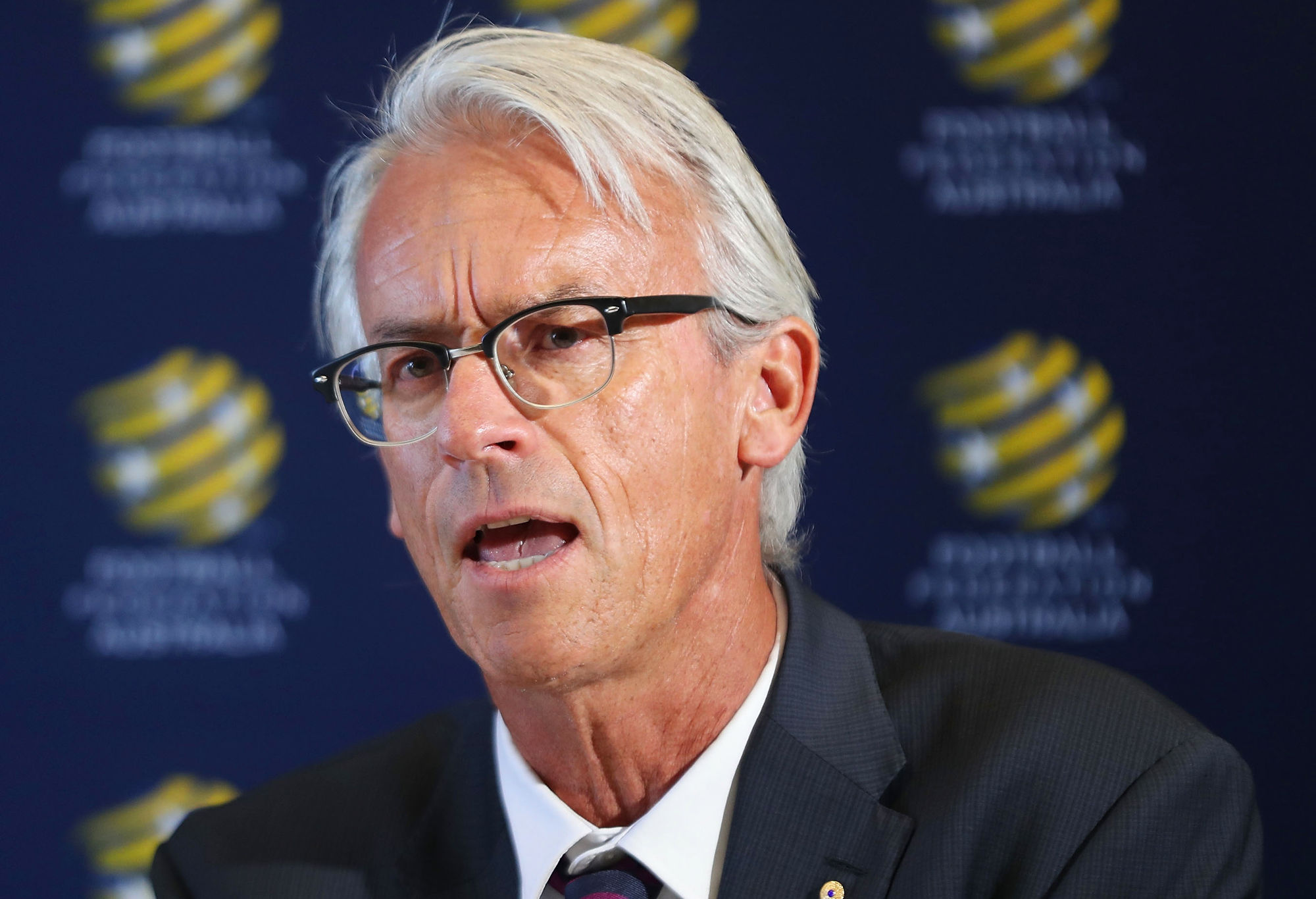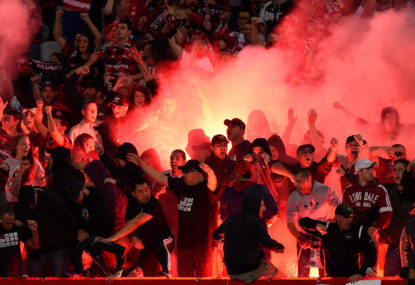The Red and Black Bloc has been one of the more controversial organisations in Australian sport. It seems everyone has an opinion on them and active supporters in general, but there is no denying the impact they have had on our game, positive or negative.
I remember when I first attended a Wanderers away game. It was at Etihad Stadium against Melbourne Victory in February 2016. Their passion for the game was almost as entertaining as the football itself, and then came the flares.
Personally, I have no problem with flares if used safely. But they rarely are, and they can be very dangerous. Indeed, I am certain that it was then, in February 2016, when the FFA’s attitude towards the Wanderers – and active support groups in general – changed.
Yes, flares have always been illegal, but I believe there was something much darker spewing from FFA headquarters, and what happened on Friday afternoon with the RBB announcing their closure for the rest of the season was the culmination of years of angst.
The police and security presence at some A-League games since then has been excessive, to say the least. We have had stadium security intervene when a Wellington Phoenix supporter took off their shirt.
We have had children at Sydney FC games being told to sit down by stadium security when they were cheering for their team, as well as numerous other incidents of prevented marches, banners being flagged and choreographies by the fans stopped.

(AAP Image/Paul Miller)
I am not saying police should not intervene when something like this happens. If fans are behaving illegally and threatening to disrupt the game, they should be evicted. But these events are in the minority. I am also not accusing police officers of unnecessary brutality towards A-League fans.
When supporter groups behave properly and enthusiastically, as the Wanderers fans did for the most part prior to that date in February, they are the greatest asset to our league. But now, the FFA are going to destroy them.
This could have been avoided from the start if the FFA had actively communicated with their most important stakeholders, the supporter groups, and tried to understand what they wanted instead of just assuming through focus groups and market research.
We already saw the importance of communication within the A-League in 2015, when the supporter groups threatened a boycott. When all stakeholders could communicate with each other, we got the result we wanted: an appeals process that upholds the most basic legal principle of innocent until proven guilty.
The goals set out in the Whole of Football Plan were because of the FFA’s attempts to communicate with the fans. It asked them what they wanted to see. With regard to expansion, licence hopefuls have, or at least should have, continued to communicate with the fans located where they are going to be based. This is exactly what the Wanderers did before they played their first game.

(AAP Image/Dan Himbrechts)
When everyone communicates with each other, we get the results that we all want. The supporters get behind their club in the way they want to create a vibrant atmosphere that encourages more people to get involved in the A-League. The FFA get the revenue that they are ultimately concerned with.
We have established that the RBB have done wrong in the past – the Graham Arnold banner was clearly not the smartest of decisions by their management, for example, and there have been times when they may have provoked police. They should be rightly punished for their illegal behaviour.
But the FFA have been doing wrong by the fans as well. The RBB have cited in their reason for closure that they have tried to communicate with the FFA and Western Sydney club management but have received no response.
While I acknowledge that someone who has worn a shirt saying ‘FCK FFA’ would be the last person David Gallop would want to meet face to face, the people who wear these shirts are not anti-social people; they are reasonable members of society.
Gallop and the rest of the FFA need to address this significant disconnect between management and the active supporters. The FFA must be aware of the criticism that they have been receiving from the most vocal of supporters.
Why is it that they cannot at least meet with the supporters instead of hiding behind prepared statements on their website?

(Mark Metcalfe/Getty Images)
We all have differing opinions on what is best for the A-League and active support, but the FFA have either intentionally or unintentionally alienated themselves from hearing any of these opinions or wants.
The FFA have lost the confidence of the fans but, by talking to these supporter groups, they have a chance to regain it. It is in their best interests to do so, otherwise, the calls for them to resign are just going to grow louder.
Both the FFA and the supporter groups have had their problems. This hypothetical meeting between the two needs to reach a compromise to clearly establish what the fans want the future of active support to look like and understand why and how that conflicts with what the FFA wants.
A boycott, when it has mainstream support and is done correctly, as seen in 2016, can be an incredibly powerful method to challenge power. The FFA has closed itself off for too long, ignoring the critics of their reign rather than acknowledging and addressing them.
Here’s hoping that the RBB can entice the change that the FFA desperately needs to make before it is too late.
































































































